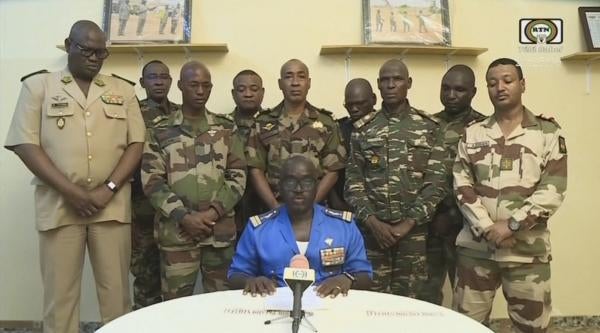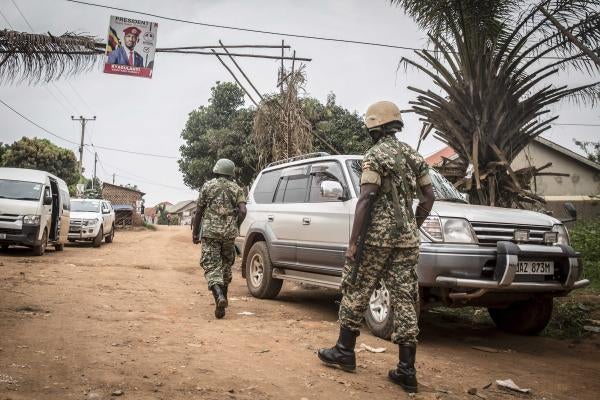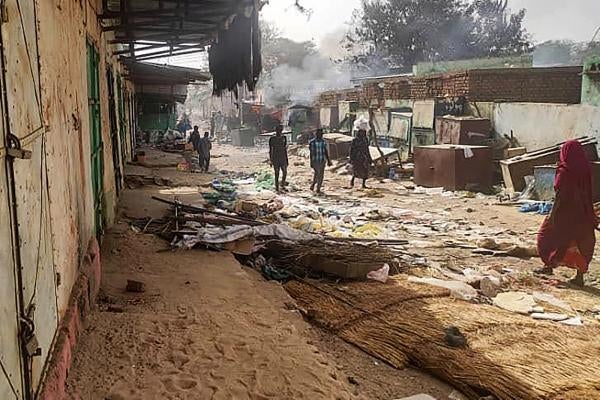Leer la versión en español
Lire la version en français
With the coup in Niger just barely two days old, we’re at a familiar stage with such situations internationally.
There’s condemnation from all the key bodies: the African Union, the Economic Community of West African States, and the United Nations. And there are still key diplomatic players – in this case, for example, France – who want to talk about “an attempted coup” to avoid sounding like it’s a done deal.
It’s a bit of a diplomatic dance that mixes outrage with hope. Everyone wants to signal that coups are unacceptable and it’s not too late for the coup leaders to change their minds. But, of course, everyone also realizes that, with each passing hour, this hope fades.
On Wednesday, Niger army officers of the self-proclaimed National Council for the Safeguard of the Homeland (Conseil National pour la sauveguarde de la patrie, CNSP) announced on national television the overthrow of the government of President Mohamed Bazoum.
Speaking on behalf of the coup leaders, major-colonel Amadou Abdramane proclaimed that the constitution had been dissolved, all institutions suspended, and the nation’s borders closed. He said his forces had toppled Bazoum because of the deteriorating security situation, as well as “poor economic and social governance.”
Many then took to the streets in support of Bazoum, who was elected president in 2021 in Niger’s first democratic transition since it gained independence from French colonial rule in 1960. Soldiers supporting the coup fired warning shots to disperse them.
Yesterday several hundred people gathered in front of the National Assembly to show support for the coup leaders, calling for the departure of French troops and for the intervention of Russia.
This is the fourth coup in Niger’s history since 1960, and the latest in a string of recent military takeovers in the Sahel region and West Africa. Since 2020, there have been four military coups in neighboring Mali and Burkina Faso. In 2021, military coups also occurred in Chad, Guinea, and Sudan.
Niger can ill afford further unrest and insecurity. The country already suffers from attacks by armed Islamist groups, as well as floods and droughts due to climate change. Niger is in the midst of a complex humanitarian crisis, with 4.3 million people, about 17 percent of the population, requiring humanitarian aid.
While the international community condemns the coup and pushes for its reversal, the people of Niger have to deal with the situation as it is on the ground. And, as everywhere, whoever’s in charge on the ground is who’s responsible for protecting people from harm. That means respecting human rights.
Rabia Djibo Magagi, a prominent human rights defender in Niger, told Human Rights Watch what she’s hoping for right now:
“The unrest generated by the coup should not create a void in the protection of fundamental rights and freedoms. The new military authorities should ensure that the human rights of all Nigeriens are upheld.”










